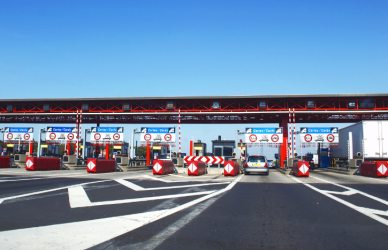Passing the CDL road test is a crucial step towards launching your career as a professional truck driver. While the prospect of the road test can be nerve-wracking, being well-prepared and knowing what CDL examiners are looking for can significantly increase your chances of success. In this guide, we’ll delve into the essential aspects you need to focus on in order to ace your CDL road test.
Understanding the CDL Road Test
The CDL (Commercial Driver’s License) road test is designed to evaluate your skills and knowledge in operating commercial vehicles safely and efficiently. During the test, a certified CDL examiner will assess your ability to perform various maneuvers, make sound decisions, and adhere to traffic rules. Here’s what you should keep in mind:
Vehicle Inspection
Before hitting the road, you’ll be required to conduct a pre-trip inspection to ensure your vehicle is in optimal condition. Examiners will check if you can identify potential mechanical issues that might jeopardize safety.
Basic Vehicle Control
The examiner will assess your proficiency in controlling the commercial vehicle, which includes skills like straight-line backing, parallel parking, and alley docking. Precise maneuvering and maintaining control are key here.
On-Road Performance
While on the road, the examiner will observe how well you interact with traffic, follow road signs, and execute safe lane changes and turns. Displaying good judgment, signaling correctly, and maintaining a safe following distance are crucial.
What CDL Examiners Are Looking For
To succeed in the CDL road test, it’s essential to understand the qualities examiners are seeking in a competent truck driver. Here are the key factors they consider:
Confidence and Composure
Examiners want to see that you’re confident in your driving abilities and remain composed even in challenging situations. Nervousness is normal, but showcasing your confidence can leave a positive impression.
Safety First
Safety is paramount in the trucking industry. CDL examiners closely observe if you consistently prioritize safety by wearing your seatbelt, checking mirrors frequently, and obeying traffic laws.
Effective Communication
Clear communication with other drivers on the road is vital. Using turn signals, brake lights, and horn appropriately helps demonstrate your ability to communicate your intentions to other road users.
Smooth Maneuvering
When performing maneuvers like backing or turning, smooth and controlled movements reflect your mastery over the vehicle. Avoid jerky motions that could indicate lack of control.
Situational Awareness
Examiners appreciate drivers who are aware of their surroundings. Constantly scanning for potential hazards, maintaining proper following distance, and checking blind spots all contribute to your situational awareness.
Adaptable Decision-Making
Road conditions can change unexpectedly. Examiners look for drivers who can make sound decisions on the fly, such as adjusting speed to match traffic flow or choosing safe alternate routes.
Avoiding Automatic Failures on Your Road Test
Nobody wants to fail their road test, but some mistakes are automatic failures. While it’s obvious that getting into a wreck or running a red light will lead to failure, there are other, less obvious mistakes to avoid.
These include:
- hitting a curb
- forgetting to use your turn signal
- rolling backward before taking off
- not properly checking your mirrors before changing lanes
Why are these seemingly small mistakes considered automatic failures? It’s because they have the potential to cause serious consequences. Regardless of your level of driving experience, you must always be aware of and properly execute safety-related actions. Any serious safety violations will undoubtedly result in an automatic failure.
Acceptable Mistakes
We all make mistakes. Even experienced drivers can sometimes miss a shift or take a turn too wide. But here’s the good news: these small errors are usually not a significant safety issue. As long as you’re generally capable of shifting and maintain composure, a few missed shifts or ground gears won’t cause you to fail. Just stay calm, take your time, and find the right gear.
Taking a turn too wide may seem like a mistake, but in reality, it often just creates a larger margin of safety. Of course, if you consistently struggle with judging turns and always swing excessively wide, you may be at risk of failing the test. When in doubt, it’s better to err on the side of caution and swing a little wider than necessary. A few inches too tight and you could hit the curb, resulting in a failure, but being a bit wide is generally not a big deal.
Considerations Beyond Driving Ability
Believe it or not, your demeanor plays a significant role in the outcome of your CDL road test. Trucking is a high-pressure occupation, and it’s not just about physically driving the truck. Maintaining composure under pressure is equally as important as driving skills.
The CDL road test will put you under more pressure than you’ve ever experienced in a tractor-trailer. Passing this exam and getting your CDL feels like a make-or-break moment for your life and career. The CDL Examiners intentionally create this pressure to see how well you can handle it. Can you stay calm when someone critiques your driving? Will you panic if you make a mistake? Will you keep your focus on the road and mirrors when the pressure is on?
These exams are designed to test your ability to perform under pressure. It’s crucial to know sooner rather than later if you crack under pressure because that poses a serious danger to everyone on the road, regardless of your driving skills.
While it’s natural to be nervous about the road test, it’s vital to stay composed and at least act calm and confident. Even if you’re shaking inside, pretend you’re relaxed and chat casually with the CDL Examiner. Feel free to ask questions before you start. And if you do make a mistake, don’t panic. Take a deep breath, recover, and even talk to the examiner about it.
For example, if you start in the wrong gear, simply relax, correct it, and say, “We’re a little too heavy to start out in that gear.” No big deal.
Another example is making a wide turn. Stay relaxed, smile, and say, “Well, that turn was wide, but no one had to run for cover. I could have cut it a little closer.”
Remember, your demeanor during the test can make a significant difference in the examiner’s decision. Stay composed, confident, and don’t let the pressure get to you.
Tips for Success
Here are some tips to help you prepare effectively for the CDL road test:
- Practice Regularly: Familiarity breeds confidence. Regular practice of maneuvers, driving in various conditions, and simulating real-world scenarios will boost your skills.
- Study the Manual: The CDL manual is a valuable resource. Study it thoroughly to reinforce your knowledge of road rules, vehicle controls, and safety guidelines.
- Take a Preparatory Course: Consider enrolling in a CDL preparatory course. These courses offer hands-on training, simulated tests, and expert guidance to enhance your readiness.
- Get Adequate Rest: A good night’s sleep before the test is crucial. Being well-rested improves your alertness and decision-making abilities.
- Stay Positive: Maintaining a positive mindset can help reduce anxiety. Visualize success and remind yourself of your progress.
Passing the CDL road test requires a combination of skill, knowledge, and confidence. By understanding the test’s components and the qualities examiners are seeking, you can approach the test day with greater assurance. Remember, the journey to becoming a professional truck driver starts with a successful road test – a steppingstone towards an exciting and rewarding career on the open road.











